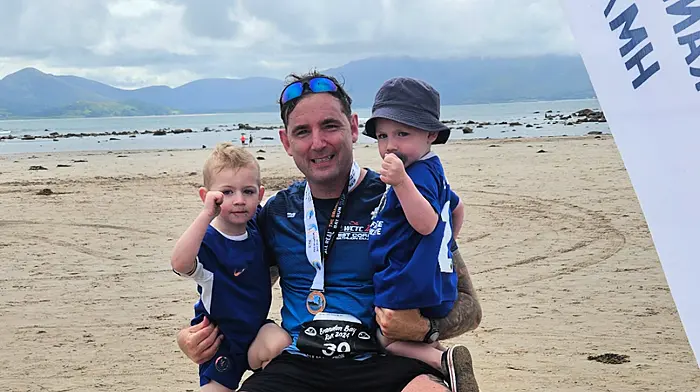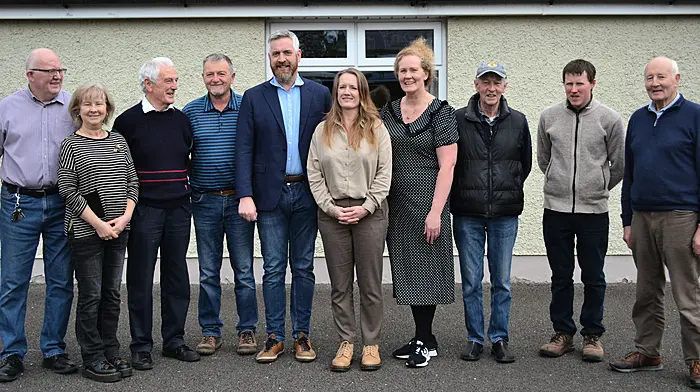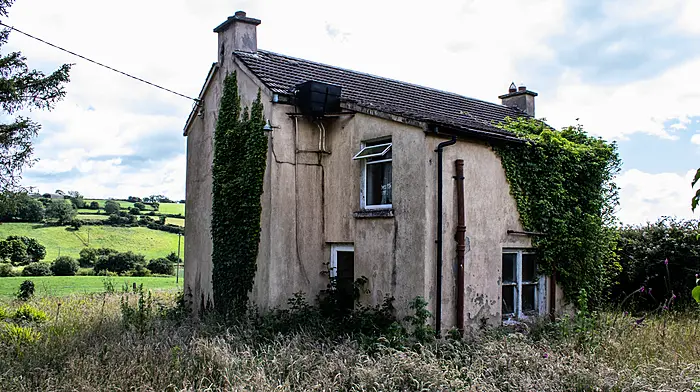A WOMAN in Ballydehob says ‘screaming blue murder’ is the only way to combat issues in the healthcare system.
Lisa Deegan told The Southern Star it was only after she rang both Bantry and Cork University Hospitals repeatedly, as well as emailing the Taoiseach, Tánaiste and Minister for Health, that she got a response from the HSE and hospital management.
She explained how her husband was initially admitted to Bantry General Hospital at 2am last Wednesday morning, suffering with severe abdominal pains.
Later that night, at 7pm, she said her husband Jamie was informed that he had very bad diverticulitis and there was a chance of sepsis ‘if anything burst’.
At 9pm, Jamie arrived by ambulance at Cork University Hospital. Lisa said he had been told earlier that there would be a bed for him and the surgeons would see him when he got there.
But instead, he was put in an emergency pod – a steel cubicle with a single seat and a drip – with no medication and no medical attention, and was told there were 34 people ahead of him waiting on beds.
When she was told he could be waiting to be seen for anything between three and five days, Lisa began ringing both hospitals, her contacts, and emailing the relevant ministers.
She claimed that it was only after ‘raising hell’, and threatening to sue for medical negligence if anything happened to her husband, that someone came to put him on an antibiotic drip, and by 9.30am he was given a bed.
‘My husband was lucky,’ she said, ‘but he spoke to other people who said they had been there for days. I believe if I hadn’t put pressure on the hospital by highlighting it in the media, or going straight to the top at government departmental level, no action would have been taken.
‘I was utterly determined to get my husband a bed and medical attention, but the question remains, what happened the other 34 people? Were they left waiting simply because they were prepared to wait?
She said the situation is ‘completely unacceptable in a first world country’.
The Southern Star has sought comment from the HSE.
Meanwhile, a 96-year-old West Cork woman who was taken to hospital after a fall, had her home help hours cut while she was in Bantry.
The woman, who was told by the hospital that she is now in need of additional assistance – as a result of the fall – in fact had her home help hours cut from 8.5 to 2.5 hours.
Independent TD Michael Collins raised the issue with Leo Varadkar in the Dáil last Thursday, saying the lady was admitted to Bantry General Hospital on September 9th after she had a fall in her home.
‘Prior to going in,’ he said, ‘she had 8.5 hours of home help each week, and when she was ready to be discharged, two weeks later, it was recommended by the hospital that she would get additional home support from the HSE.’
But the family were not only notified that the additional hours would not be forthcoming, they were told that their mother’s home help would be cut back to 2.5 hours a week.
They were also told that the two care workers who had been looking after their mother have been redeployed to work with other patients.
‘Is this new HSE policy?’ the TD asked the Tanaiste, to which Leo Varadkar replied: ‘Certainly not.’
‘I am very sorry to hear of the experience of that lady,’ said the Tanaiste, who requested ‘more information’ so that he could look into the matter.
Deputy Collins said the woman’s treatment was scandalous and added that a woman of her age deserves the respect of the State, but instead was being refused it.
But on Wednesday of this week, after the HSE had been contacted by both Deputy Collins and this newspaper, it announced that it had not only reinstated the woman’s 8.5 hours of home help, they had increased it to 16.5 hours.
‘This,’ Deputy Collins claimed, ‘is a victory for the persistence of her family and ‘pester power.’
‘I am delighted for her that she can return home with the support she needs,’ he said.– But he noted that many older people are now living in fear of losing their home help if admitted to hospital.
‘The government has provided funding to recruit nine home support managers, which will create more bureaucratic and managerial structures rather than recruit workers that can assist people such as this 96-year-old lady,’ he added. ‘It’s a broken approach, it must change.’








